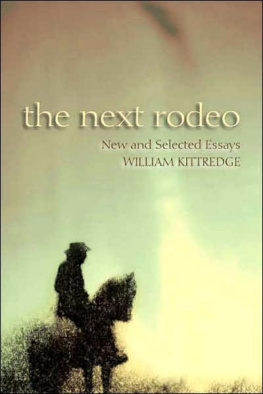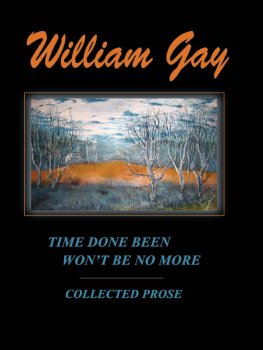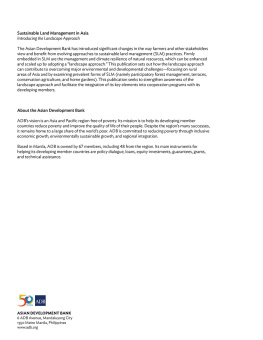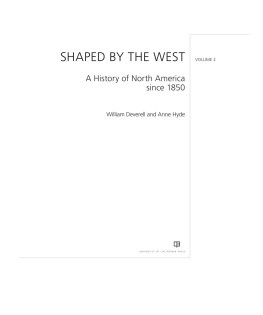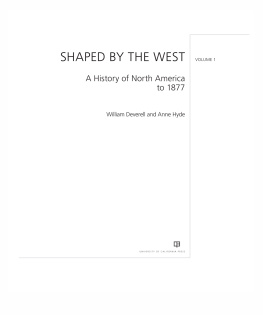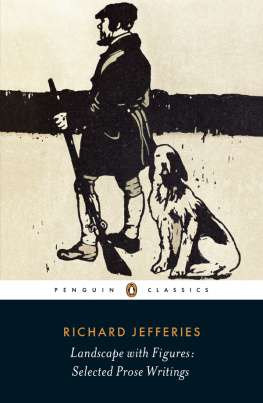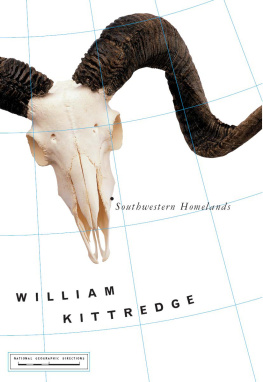Introduction
My father wanted to be an honest country lawyer and politician. He ended up a rancher with influential friends. When I was thinking of going seriously into writing, he said, Ive done things I hated all my life. I wouldnt recommend that. I took that as permission to court foolishness, bless him, and to get lost in work Ive loved.
My mother Josephine was a single child in a blue-collar family. Her father was a blacksmith. While Josephine loved artsshe played the piano and sang light opera in local showsshe married into a ranch family that was rising into the ruling class in southeastern Oregon and came to believe that Dwight Eisenhower was the cats meow. Hell take care of people like us, she would say.
I argued with her, not my father, who was too formidable. In 1951, when I was at Oregon State College, majoring in agriculture, the topic, about which my mother and I held passionate opinions but knew little, was fairnessclass relationships in America. Id finished a college literature class where we read Walden and Emerson and Whitman. Their emphasis on what I took to be the native nobility of ordinary people was the gold standard for me, while Eisenhower represented the forces of power and wealth, military men and bankersrepression.
By taking his side, my mother, to my mind, was betraying her upbringing, advocating fascism. After I called her Missus Hitler, she whacked me across the head and wept while I sulked.
Even before college, as a boy on our ranch, Id learned to resent the workings of power. I was sent out with the field hands in order that I might learn to work. What I learned was to revere those sometimes bitter but often humorous men.
After I read Hemingway and decided to write, at the age of twenty-one, not long after my arguments with my mother, the working men and women Id known and the damages they suffered were the highly emotional source of my thoughts about injustice. What else did I know?
Its a habit of mind Ive never gotten over. It remained true at the age of thirty-three, when I went back to writing and was thinking of leaving the ranch, and it still isnot so much by choice but because it was the synaptic groove my mind had begun deepening.
Through the late 1960s and most of the 1970s I wrote dozens of stories about rural people, getting one or two published each year. By the fall of 1978, at the age of forty-six, I was low on momentum and finding that what I wanted to write about often involved politics and arguments that couldnt be worked into fiction without becoming didactic.
At the same time, to my good fortune, Terry McDonell started Rocky Mountain Magazine. He asked me to write an essay for his first issue. I said I didnt know how. He said, Ill tell you. And he did, on the telephoneit took him maybe three minutes and went this way: (1) a set-up anecdote that introduces readers to the problem, (2) false solutions, (3) recognition of a real solution, and (4) some hint at the consequences of acting out that solution. That seemed workable, and the piece paid wonderfully by my standards, so I gave it a shot.
My first essay, Redneck Secrets, was printed, and my deal with the world was transformed. People called and chewed me out on the telephone. I got letters (and one telegraph!). Maybe I could find an audience.
The national press was interested in almost anything about the American West through the 1980s and into the 1990s. I went to the ranchlands of northern Nevada and wrote Owyhee Buckaroo for Rocky Mountain Magazine and learned to think about environmental preservation and restoration while following Doug Peacock as he followed the grizzly bears around the highlands in Glacier Park. I found I was deeply drawn to preserving the world. I focused on family and wrote Home and Owning It All for Graywolf Press and shared a National Magazine Award for Essays and Criticism at Harpers for Who Owns the West, a story about working men that then formed a chapter in Hole in the Sky.
Projects loomed, and loom. An ill-educated boy, I once thought no one would ever give me much that would prove very useful in terms of realizing my evolving dreams. Turns out its been gifts all the way.
WILLIAM KITTREDGE
MARCH 2007
Home
IN the long-ago land of my childhood we clearly understood the high desert country of southeastern Oregon as the actual world. The rest of creation was distant as news on the radio.
In 1945, the summer I turned thirteen, my grandfather sentenced his chuck-wagon cow outfit to a month of haying on the IXL, a little ranch he had leased from the Sheldon Antelope Refuge in Nevada. Along in August we came in to lunch one noontime and found the cook, a woman named Hannah, flabbergasted by news that some bomb had jus't blown up a whole city in Japan. Everybody figured she had been into the vanilla extract, a frailty of cooks in those days. As we know, it was no joke. Nagasaki and then VJ Day. We all listened to that radio. Great changes and possibilities floated and cut in the air. But such far-off strange events remained the concern of people who lived in cities. We might get drunk and celebrate, but we knew such news really had nothing to do with us. Not in the far outback of southeastern Oregon.
When I came home from the Air Force in 1958 ,1 found our backland country rich with television from the Great World. But that old attitude from my childhood, the notion that my people live in a separate kingdom where they own it all, secure from the world, is still powerful and troublesome.
When people ask where Im from I still say southeastern Oregon, expecting them to understand my obvious pride.
***
Jack Ray was one of the heroes of my boyhood. A slopeshouldered balding little man, Jack dominated the late roughhouse craziness at our mid-July country dances. The Harvest Moon Ball.
He can hit like a mule kicking, my father used to say after those dances, winking at us kids and grinning at my mothers back while she served up a very late Sunday breakfast of steak and fried mush and biscuits and thick sausage gravy.
At that time I was maybe five or six years old, and I would have been asleep in the backseat of our car for a couple of hours when the shouting and fighting started around midnight. So I recall those scenes with a newly awakened childs kind of strobe-light clarity, a flash here and there, all illuminated in the headlights of 1930s automobiles. The ranch women would be crowded outside onto the porch where they could see, some wife weeping, the men out closer to the battle in the parking lot, passing bottles.
But what I see mainly is Jack Ray getting up off the ground, wiping a little trickle of blood from the corner of his mouth, glancing down at the smear on his hand, his eyes gone hard while some sweating farm boy moved at him again; and torn shirts, the little puffs of dust their feet kicked there in the headlights. At that point my memory goes fragile. There is some quick slippery violence, and the farm boy is on his knees. Jack Ray is standing above him, waiting, wheezing as he breathes.
Its over, everybody knows, and soon it is. Two more grunting punches, and the farm boy is down again, and Jack Ray steps back, his eyes gone soft and almost bewildered in the light as a little shudder moves through the crowd, and someone shouts, and the bottles pass again. I see Jack Ray, there in those headlights, smiling like a child now that its finished, the farm boy up on his knees, shaking his head.
No harm done, the air clear. I see it over and over, summer dance after summer dance. I see the kind of heroism my boyhood educated me to understand and respect.
And I hate the part that comes next. I grew up and ran the haying and combine crews on our ranch, and there eventually came a time when I hired Jack Ray to work for me. He had worked a lot of seasons for my father, and such men always had a job with us. Jack was maybe fifty by that time and crippled by his life, the magic gone, a peaceable man who seemed to have turned a little simple. He did what he could, chores around the cookhouse, and once in a while he drank. After a bout in town that earned him some time in the county jail, he would show up grinning in the bunkhouse.

